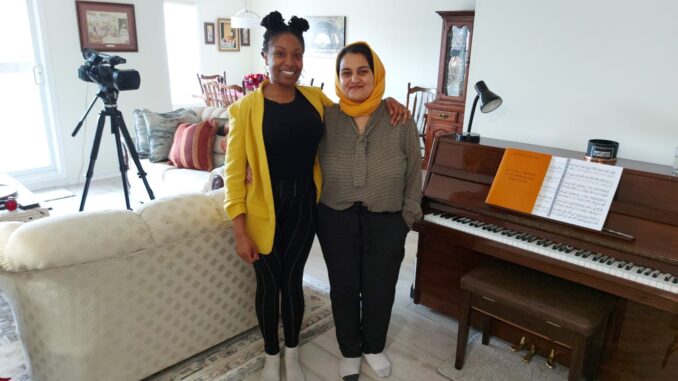
BY: YALDA SARWAR
Kimberly Brathwaite is a twenty-eight-year-old Ontario-based musician, set to release the very first song of her career, called The River Song. But reaching this milestone and stage of her life, were far from easy.

Kimberly was a university dropout student until 2018, wondering why she had to endure the amount of pain she did.
“The problem really, is that I am a survivor of an enormous amount of abuse and neglect. And I suffered from overwhelming trauma, clinical depression, anxiety, and a whole bunch of really dark stuff that never really go away,” she adds.
Many ask why she didn’t seek help, Kimberly says. But the debate of seeking and getting help, is easier said than done.
“I didn’t have the language to communicate what was affecting me, because I felt so boxed-in my entire life up until that point and I was just so used to nobody listening. So, I learned how to just carry things in and not talk about it because life has shown me so many times previously that if I seek help, it’s not going to be there.
The pain Kimberly has experienced, has a number of root causes. She comes from a broken home and a marginalized community, with a history of financial instability, new and generational trauma, abuse, and an unforgiving series of mental illnesses.
“A person cannot thrive to a certain point in their life, as a direct result of prior events,” says Toronto Psychologist Lucie Costin-Hall, attesting to Kimberly’s surroundings causing a big part of her struggles, adding that there is an overwhelming number of societal pressures on young adults – especially those residing in Ontario.

“So how do we heal our young adults and all students dropping out, as a society? We must give them opportunities. And those opportunities begin with more accessible mental health services, which we do not yet have, as a society,” Lucie adds.
From rejections by educational institutions, to those once close to her, and in addition to braving through trauma, anxiety, and mental illnesses; Kimberly is now enroute to normalcy and is even soaring again. She has just been accepted to a prestigious music program in University of Toronto, and continues her classes at the Royal Conservatory of Music in Ontario.
But the question remains about the thousands of nameless students across this province and country, who haven’t been as fortunate as Kimberly. How and when will they all thrive through their sorrows?
Toronto Psychologist, Lucie Costin-Hall reiterates just that vie the interview below.

Be the first to comment